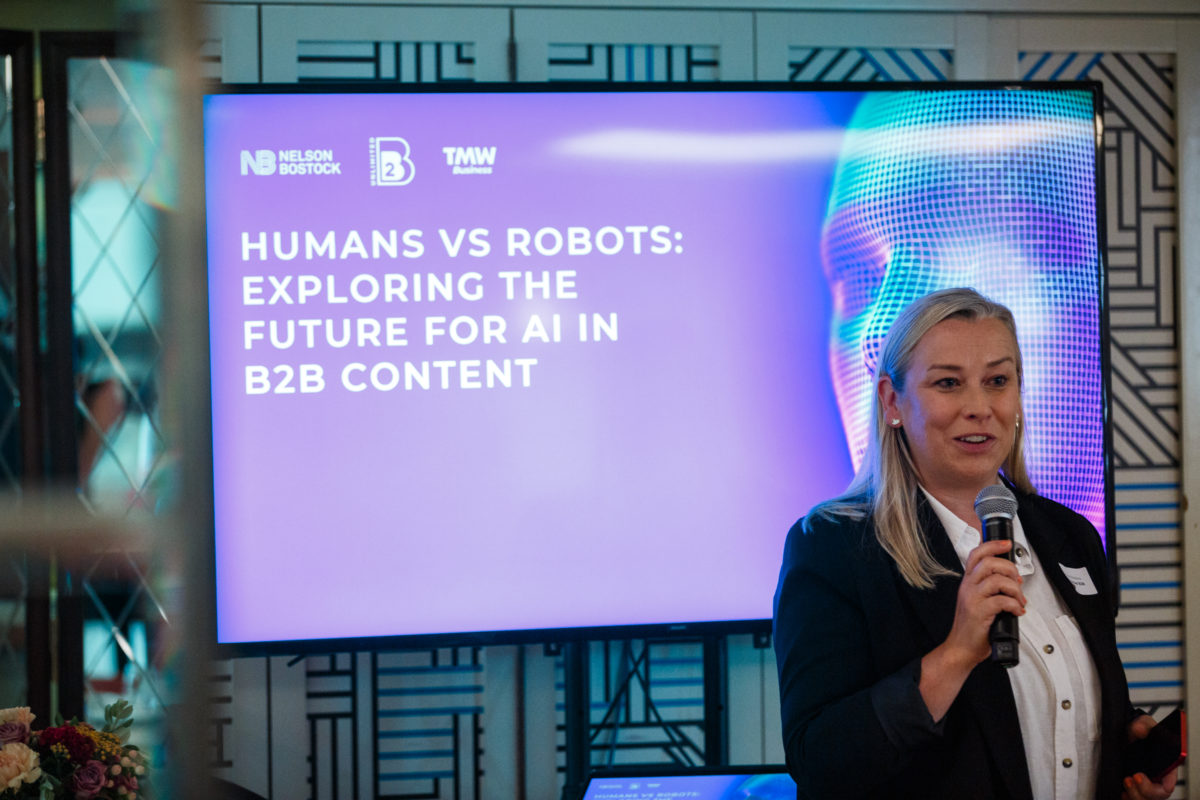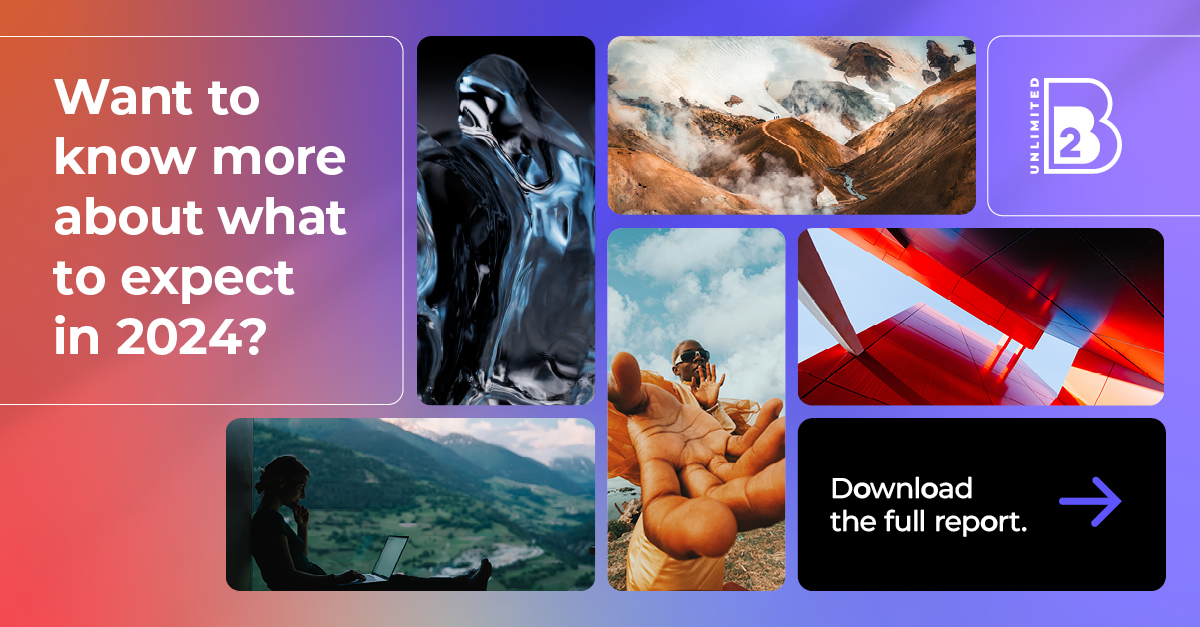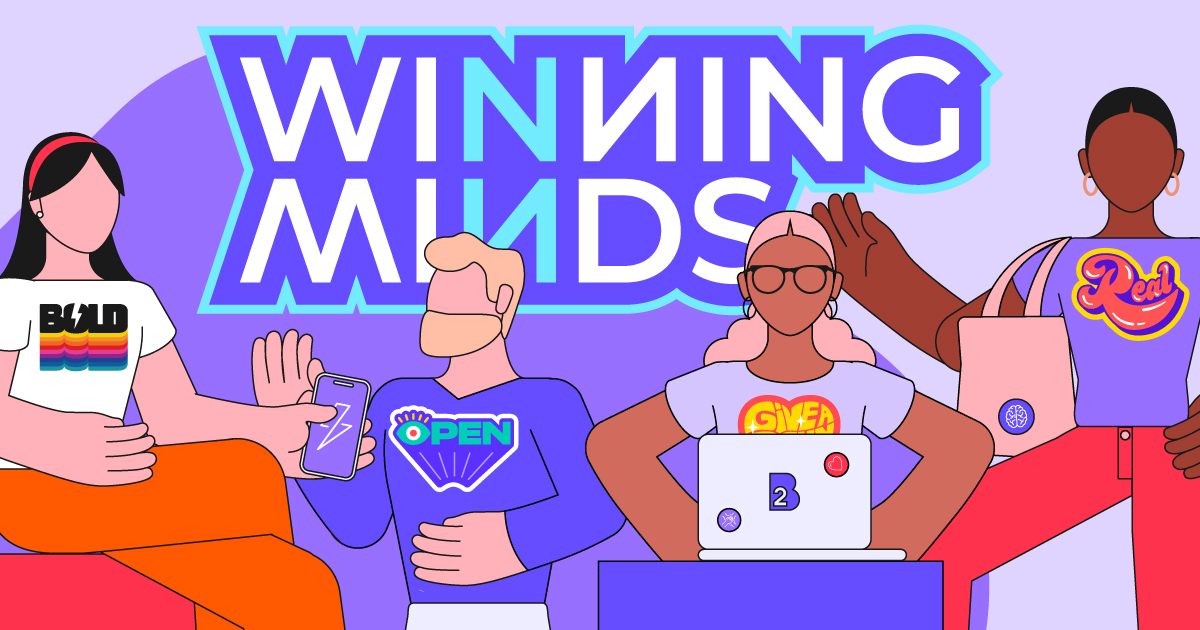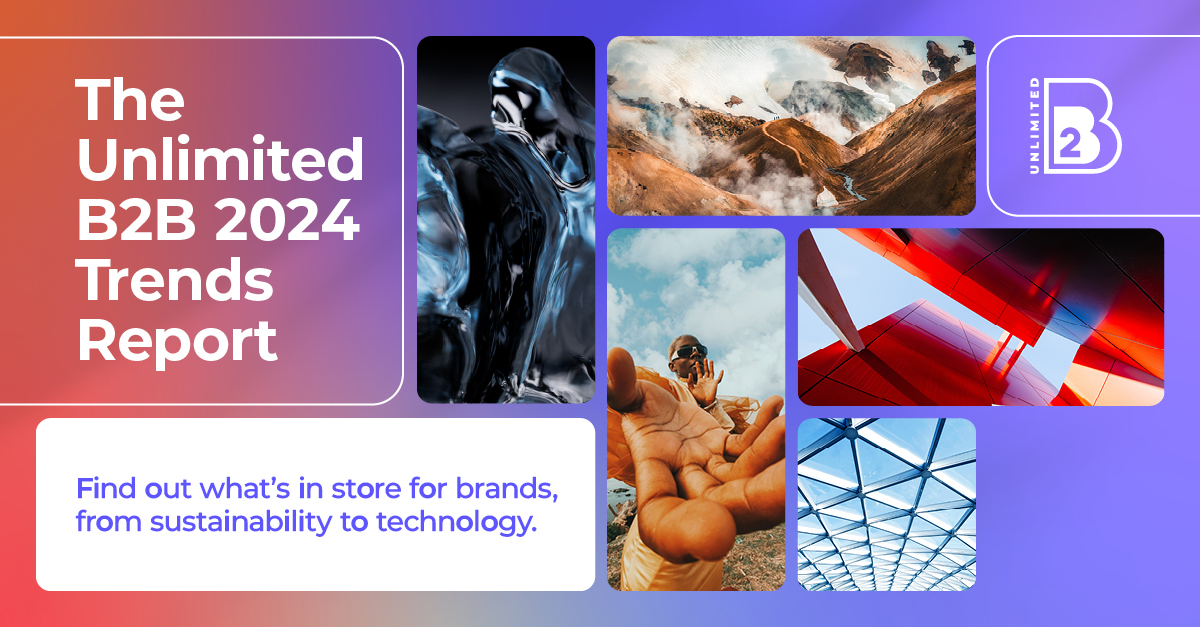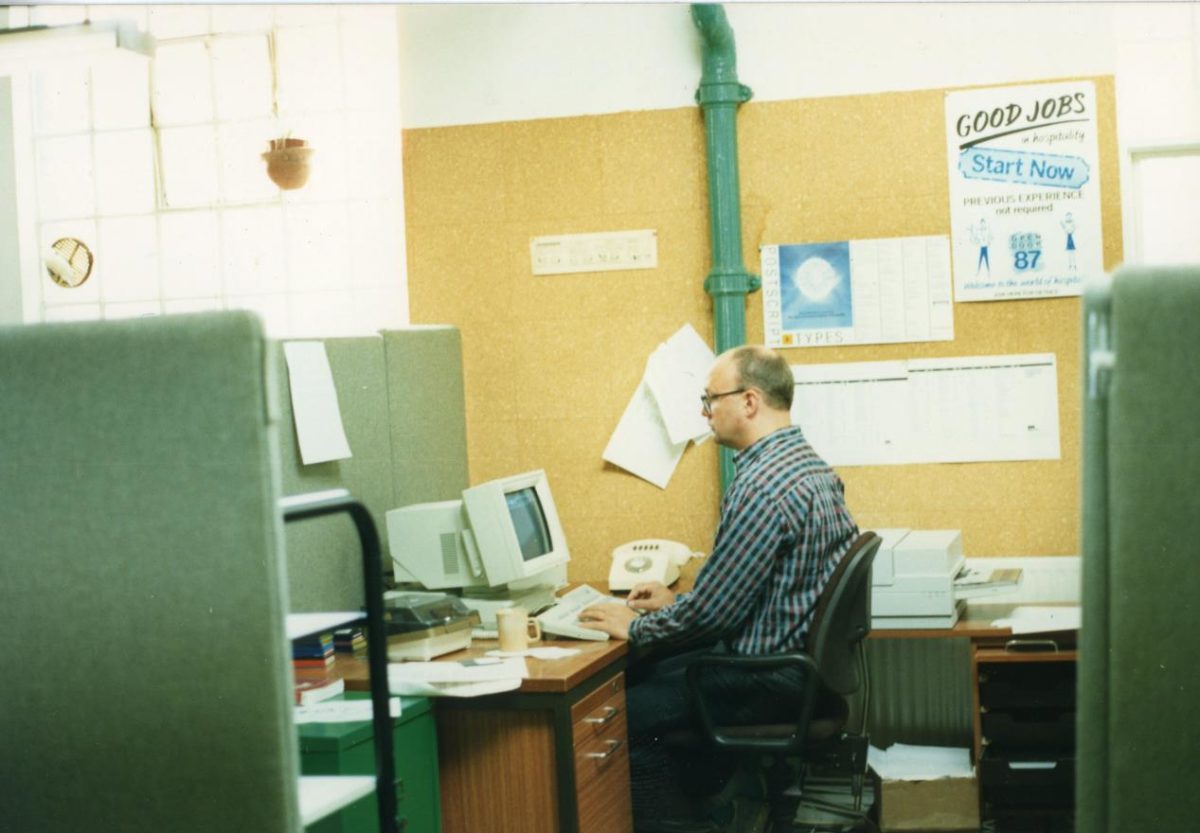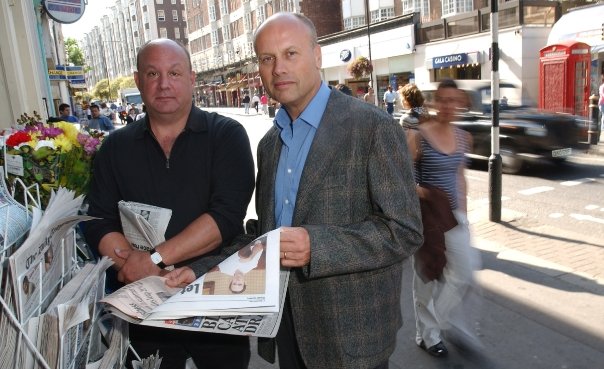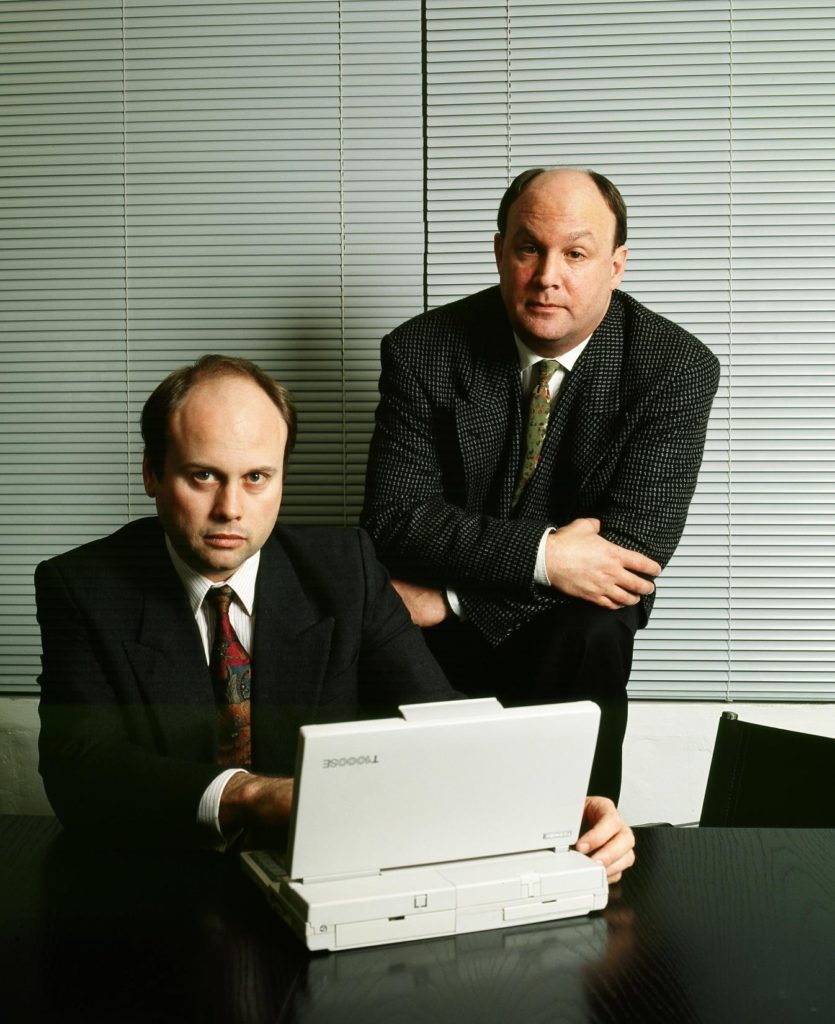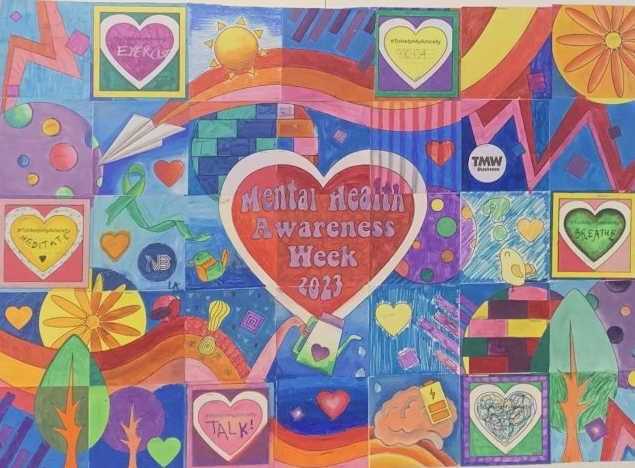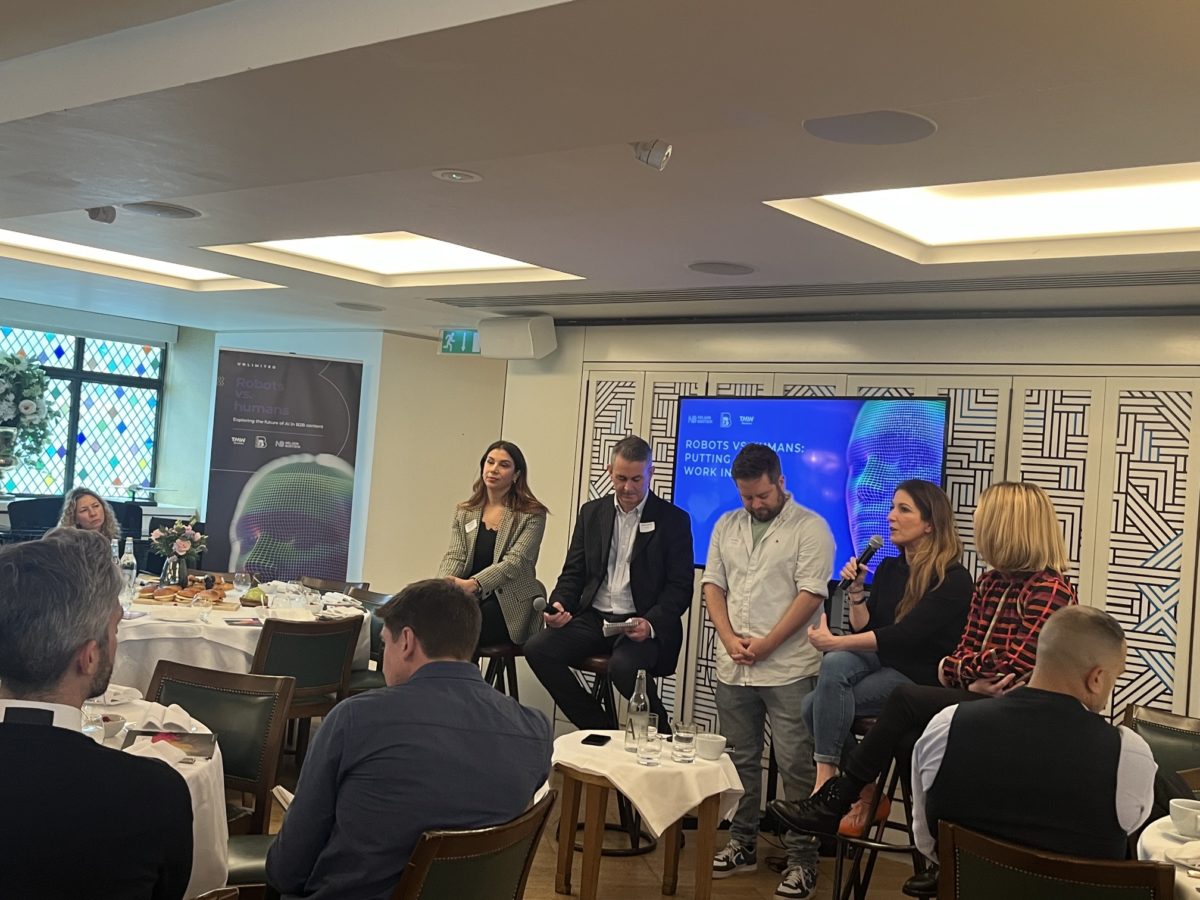The second instalment of our ‘Humans vs. Robots’ event series revealed one clear reality – organisations are on their way to establishing generative AI within their day-to-day work.
And is it any wonder? Generative AI has accelerated far beyond the hype we discussed in our first event. We’ve all heard the claims – it helps you create more great stuff with the same resources, and can even improve the quality of your work – if only by enabling people to focus on the areas where human ingenuity brings the greatest value.
But if the thought of everyone racing ahead fills you with FOMO or anxiety, you are not alone.
One thing that has remained true is the uncertainty B2B brands are feeling about how best to proceed. Though most are motivated and willing, burning questions remain on the practicalities. Where should you start? How far can you go? How worried should you be about IP, legal implications, or bias? Should we expect marketing budgets to fall?
At our recent ‘Humans vs. Robots: The Alliance’ event, we asked an expert panel to share their practical examples of where AI is being put to work in B2B. Deftly moderated by veteran tech journalist Martin Veitch, we were proud to host Leila Hajaj, Executive Communications at Google DeepMind; Karen Quinn, Senior Director of Brand and Corporate Communications at Finastra; Liza Hicks, ex-IBM Social and Content Lead; and Unlimited Group’s own Technical Director, Tom Wilks on the panel.
Here are five of their top tips for getting started with GenAI:
Start Experimenting, and Fail Fast
“It’s like driving into an empty car park. You think, ‘hey, I can park anywhere’, and the choices are overwhelming. That’s what it feels like when you start using generative AI. The hardest part is often making that first choice,” said Tom Wilks.
Narrowing down the possibilities for AI implementation is the first step, but it’s where many B2B professionals admit to being blindsided. It’s also, according to our panellists, one of the more satisfying challenges to address.
“Block 45 mins in your calendars,” Liza Hicks suggested, “Think about what is taking up your time, and identify the tasks you don’t enjoy doing. That’s where AI can help.”
Tom Wilks agreed. “Start small,” he said, “with quick wins, things that are really competitive.”
That’s the business angle – but there’s a real human benefit to turning AI tools towards your least favourite tasks – and this has great potential to make your working life more joyful. “There’s a lot of people that still have this fear that AI is going to take their jobs – but in fact, it will just take their tasks,” Karen Quinn said. “Embrace it. See what joy it can bring to your day.”
Getting stuck in is also the best way to identify the places AI will have the biggest impact on your working life – whether that’s by taking over the tasks you dislike, or increasing overall efficiencies. It helps to be very intentional, Leila Hajaj advised. “Think about the tasks you want AI to do, and break them down into specific component parts. It’s about getting comfortable with experimentation, as well. You’re not going to get it right the first time – you’re going to need a ‘fail fast’ mentality.”
Work On AI Literacy
Once you start identifying use cases for generative AI, you’ll need to begin the next stage – getting it to do exactly what you want. If implemented correctly, AI can get you “70% of the way” with certain tasks, Liza Hicks said. That leaves a solid 30% still in your hands.
The more AI literate you are, the more you can influence those percentages – but you can’t assume an AI output is 100% accurate. Human oversight is vital, and will become increasingly so as you start implementing AI into your processes – especially with brand reputation on the line.
“There are inherent issues, especially surrounding things like DEI, within generative AI,” Leila Hajaj warned. “It’s a tool. Our success depends on how well we wield the tool. That’s why, in the future, everyone is going to want AI literate people in the workforce. You wouldn’t hire someone who refused to use the internet.”
Panellists spoke about how their companies were approaching the issue of AI literacy. Attendees heard how some, like Finastra, had implemented dedicated training time and even organised AI expos, while others were encouraging employees to experiment by taking a gamification approach to AI use.
“It’s not a tech skill, it’s a life skill,” Karen Quinn said. “We tell people – even if you don’t use it here, you’ll need it eventually. It’s not going away.”
Think About (and Implement) AI Policies – Now
“A lot of data is at play here. Get in early and set your policies.”
That was Leila Hajaj’s advice for B2B businesses. She continued, “We’re at this really interesting inflection point where AI is not particularly regulated – but this is coming. There are going to be more and more guardrails put in place about how AI is used in a wider society – it’s imminent, and businesses are going to follow suit and bring up their own AI charters.”
It’s a belief Karen Quinn shared. “For us, it’s about tempering enthusiasm in some areas, and encouraging it in others.” Exploration is good – but doing so safely is paramount. “We’re looking at Shutterstock AI and Adobe AI, so the ones that have commercial licensing in place, in order to protect against some of these regulatory changes. Otherwise you’re potentially opening yourself and your organisation’s reputation up to something that could harm you in the future,” she said. “It pays to be a bit cautious.”
And if that sounds off-putting, Liza Hicks was there to remind us that it’s not so dissimilar to the ways of working we’re already familiar with within the B2B space. “We’re used to working within frameworks in our jobs. This is really no different.”
Prepare To Spend (At Least a Little)
When ChatGPT first hit the web – and the public consciousness – it was the price tag which caused some of the biggest shockwaves: it was free.
Of course, in the time since, AI tools have been launching from every direction, and many of them come with a considerable charge. So, with cyber security and data safety on the line, how much should B2B businesses be expecting to spend?
“It’s important to maintain a clear view of costs,” Karen Quinn said. “Computationally, if your engineers are using generative AI, using virtual environments that can be scaled according to the task and size of the model is one way to manage costs.”
This kind of reactive approach to the business need is one Liza Hicks also recommended. She shared a process of “looking first at specific tools, and seeing what extra abilities they can offer you.” Then, only after CIOs can confirm whether these abilities don’t already exist within previous tools, should you make the purchase. “It’s about that business case for added impact.”
But that financial impact may not be immediately visible, Tom Wilks cautioned. The immediate business case in the short-term is more about the time that AI can help you to reclaim. “It won’t always be financially tangible right away – instead, you’ll see benefits like more delivery, higher-quality execution, and more innovative thinking over a period of six, nine, twelve months.”
And Leila Hajaj went one step further. “It’s a red herring to focus on how AI can drive ROI alone,” she said. Instead, think about how you can repurpose the time saved by AI tools into something really exceptional. “In the long term, it’s going to help you deliver bigger, more exciting, more creative programmes. The value will be in the long term, and what you can produce, not what you can save in the short term.”
Think About What You Actually Need – and Get Tailored Tools
The ‘buy versus build’ debate is collecting momentum as larger brands begin experimenting with generative AI, and more and more of them, (like Amazon), are announcing intentions to develop their own LLMs.
But Leila Hajaj cautioned that this shouldn’t be the route all businesses take. In fact, she said, you shouldn’t even be worried about buying into a large AI platform unless your business is sufficiently large enough to get use from it. “When you’re a big business, platforms as a service integrate easily. But these are costly. So think – what do you really need?”
She continued, “If you have a niche use case, just get a small, specific tool.” That’s why experimenting at first is so important – because you’ll only know what your specific needs are when you’ve given yourself an opportunity to explore potential use cases are within your day-to-day working life.
The kind of content you need to produce should also influence the tools you choose. Some tools will have language models more suited to your end-goal than others – and so it’s worth experimenting to see which is better at addressing your specific challenge.
Don’t Lose The Human Element
One thing is clear: there is no battling against the robots. “Don’t fear AI. Don’t be afraid to dip your toe in the water and see where it can take you,” said Leila Hajaj. “It’s not a question of if, but of when you’ll implement AI.” In other words – avoid starting now and you’re simply risking falling behind.
Even for the risk-averse, there’s no reason for concern – humans are still going to play a vital role in an AI-powered future. Just as our panellists predict that humans are going to grow to depend on AI tools, the AI tools in question are just as reliant on the people using them to produce good work. “Much like an understudy, they’re there to make you better,” said Karen Quinn.
And Liza Hicks agreed, “AI can’t uncover the individuals who will bring brands to life. That’s up to us.” AI can’t come up with unique angles or compelling stories, even if it can help you craft the way you tell them. Getting the best results from the tools requires human input. Whether through prompt engineering, or quality control and fact-checking – generative AI is not perfect, and neither can it add that extra-special human touch.
Towards the end of the session, one audience member queried how much longer we will have to babysit AI tools with human moderation and supervision. The response from the panel was almost unanimous: forever. Liza Hicks explained how, although AI is adaptable, an algorithm can’t (yet!) pick up on a cultural moment. That means it will potentially miss out on creative opportunities, and issues of bias will likely remain for as long as the data AI draws from is itself imperfect. “We should never take our eye off the ball,” agreed Leila Hajaj.
“Until AI tools are able to purchase and check other AI tools, there will be space for the human element,” said Tom Wilks.
So, at least until then, let’s keep working together – in an alliance that promises to revolutionise the way B2B professionals work.
Interested in hearing more? Join our ‘Humans vs. Robots’ LinkedIn community, created to bring like-minded B2B professionals together, to learn, share and progress with GenAI. It is an open forum to support us all in putting AI into practice. Please follow the group at this link, and we’ll see you there.


